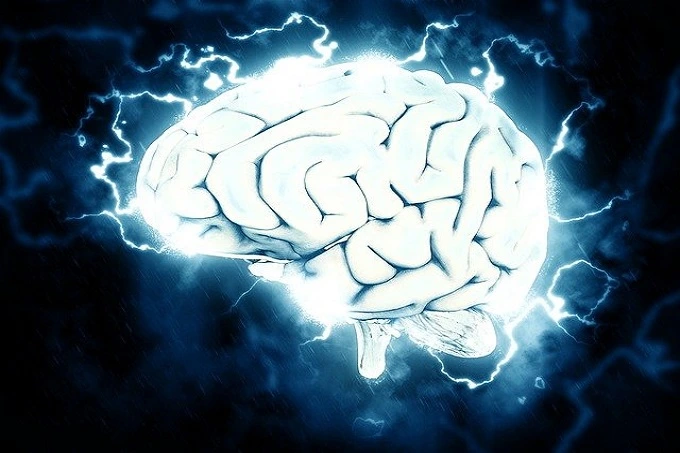7 things your brain can’t do

The brain of a human being is an incredible organ. In terms of computing power, if it were to be compared to a computer, scientists estimate that it would be equivalent to 1 exaFLOPS, equal to a quintillion or a billion operations per second. Our storage space can accommodate approximately 1 petabyte of information, equivalent to 1 million gigabytes. No modern supercomputer has such power, which means that humans are still far more intelligent than machines.
Despite all of its power, the brain is incapable of performing many tasks that appear to be very simple.
The brain is unable to detect moist air
One reason is that when it starts to rain, we can feel the moisture in the air. If this is the case, then why can’t the brain feel it? The fact of the matter is that at such a time, you do not feel the humidity itself; instead, the nerves on your skin have registered the pressure of a raindrop and a temperature change.
The sensation of humidity is just the accumulation of several other sensations, such as pressure, the texture of the elements, temperature, and so on. If both of these conditions are met, the brain can conclude that the substance contains water. It is very simple to demonstrate that he does not understand how to analyze humidity accurately; all that is required is to touch something that has a very moist sensation but is not a slime, for instance. In addition, the brain does not perform the same level of analysis on what it considers humidity in various body parts.
2. Is unable to distinguish the color black when there is no illumination
What actions will you take if you are tasked with representing the color black? When you close your eyes, the answer will most likely appear to you in your mind’s eye. But it’s not quite black; rather, it’s a very dark shade of gray rather than true black. Your eyes will still be able to pick up photons of light even if you are in a completely dark room with draped windows and there are no other light sources in the room. This is because it is physically impossible for simple materials to block out light from entering the eye completely.
In addition, the concept of black cannot be comprehended without the presence of light. Rhodopsin, a pigment of the retina, is responsible for this, and it plays an important role in converting light signals into electrical signals that can then be sent to the brain. This enables you to understand better what is in front of you. Photons are responsible for the isomerization of rhodopsin and the initiation of the transformation process; they are also responsible for activating the pigment. Put another way; if photons do not enter your eyes, you will eventually lose your vision.
Therefore, if you find yourself in a room covered with material close to a black color around the perimeter, the Vantablack brain will begin to malfunction and will not understand how to interpret the signals sent to it.
3. Capable of sensing magnetic fields but lacking the ability to interpret them
The question “how do they do it?” comes up every time we watch the birds make their annual migration south in a coordinated flock and then make their way back home. This question has been answered by science for quite some time: they are directed by our planet’s magnetic fields. The same mechanism can be found in other animals. It is generally accepted that several different mechanisms are accountable for this, one of which is the presence of cryptochromes. Cryptochromes belongs to a group of photosensitive proteins that are primarily accountable for the capacity to recognize blue and ultraviolet colors. Many researchers have hypothesized that the presence of cryptochrome in the retina of birds’ eyes gives them the ability to see the Earth’s magnetic field.
The fact that people also have cryptochrome is an interesting discovery in its own right. Furthermore, they are so active in some people that when exposed to magnetic fields, proteins are activated and react in the same way as they do in animals that use them for navigation. This only occurs in people with a genetic predisposition to have a high activity level.
To put it another way, the brain not only feels the fields but also has the potential to use them to navigate the environment. If you could tell me what to do with it, I could do it. The problem is that the human brain is unable to interpret these signals on either a conscious or a subconscious level. This is a problem because the signals are important.
4. When a person is under the influence of alcohol, their brain is unable to remember information
Consuming alcohol has a significant negative impact on brain function. The more alcohol you drink, the less you will remember the events of that day. When a person wakes up in a room that is unfamiliar to him and is unable to say for certain where he has been for the past few hours or what he has been doing, strange and sometimes unfortunate situations can arise. This is because the person has no memory of the previous few hours.
The point is not that alcohol causes you to forget events, as most people believe, but instead that it interferes with the mechanism of memory, and there is a significant gap between these two ideas. When you forget something, you prevent yourself from remembering the information previously kept in your memory. When an individual cannot create new memories, it is analogous to a digital video recorder (DVR) that does not have a memory card. There is a picture, but there is no recording.
There are already failures in the work of the hippocampus when the alcohol content in the blood reaches 0.3 ppm. The hippocampus is also responsible for the mechanism that is responsible for the process of memorizing information. The ability to remember nothing gradually disappears as more and more alcohol is consumed. Therefore, after coming, an individual who has been on a binge for an extended time cannot remember everything that occurred to him for several weeks or even months after he has sobered up.
5. Unable to relax in an unfamiliar environment
The majority of people, when they find themselves in an unfamiliar environment, are unable to fall asleep normally for at least the first night, even if the environment is safer than usual. All of this is possible thanks to the mechanism established during the course of evolution and designed to ensure our safety. When we are in an environment foreign to us, our brain reacts much more strongly to any changes that occur and remains on high alert at all times. In addition, even if you successfully fall asleep, only the right hemisphere of your brain will rest while the left hemisphere is kept in a state similar to that of a combat-ready mode. There is a loud sound somewhere in the distance, and you will immediately awaken.
According to the findings of some studies, this type of feeling only unfolds itself during a person’s first night spent in an unfamiliar location. Already on the second night, both hemispheres of the brain can rest, albeit not as effectively as they would in a more familiar setting. However, depending on the person’s psychological makeup, getting used to something new can take up to a week for some people.
6. Unable to differentiate between physical and emotional pain
Do not immediately respond with laughter to a person who claims that he has suffered heartache as a result of the unfavorable actions of a loved one and that he felt his heart being torn apart. This person is not trying to exaggerate the situation in order to elicit pity from you. The brain cannot differentiate between the different types of pain experienced by the body. According to it, this is a potentially hazardous occurrence. The effect of being hit on the finger with a hammer and having someone speak rudely to you has a similar effect on how you feel.
This is also supported by research conducted with MRI machines, which discovered that the same patterns of brain activity are present whether physical or emotional factors cause the pain. In addition to this, being in emotional pain makes us less intelligent. According to the studies carried out by scientists, the likelihood of a person suffering from mental pain is reduced by approximately 25 percent.
7. The brain cannot correctly determine the height
We do not require any specialized training to arrive at an accurate estimation of the distance we have traveled. All of this is made possible because of the distance measuring cells, which function in much the same way as a navigation system when it comes to the horizontal plane.
Failures start occurring as soon as this horizontal plane transitions into a vertical one, including a total misunderstanding of the distance that was traveled. When climbing uphill, for example, we focus on how far we have come from the perspective of the horizon rather than how high we have gotten rather than how high we have climbed. After observing rats in an experiment, researchers concluded that the portion of the brain in charge of displaying space and distance almost does not register any data when the animal is only climbing upward. In human beings, the phenomenon also presents itself.




